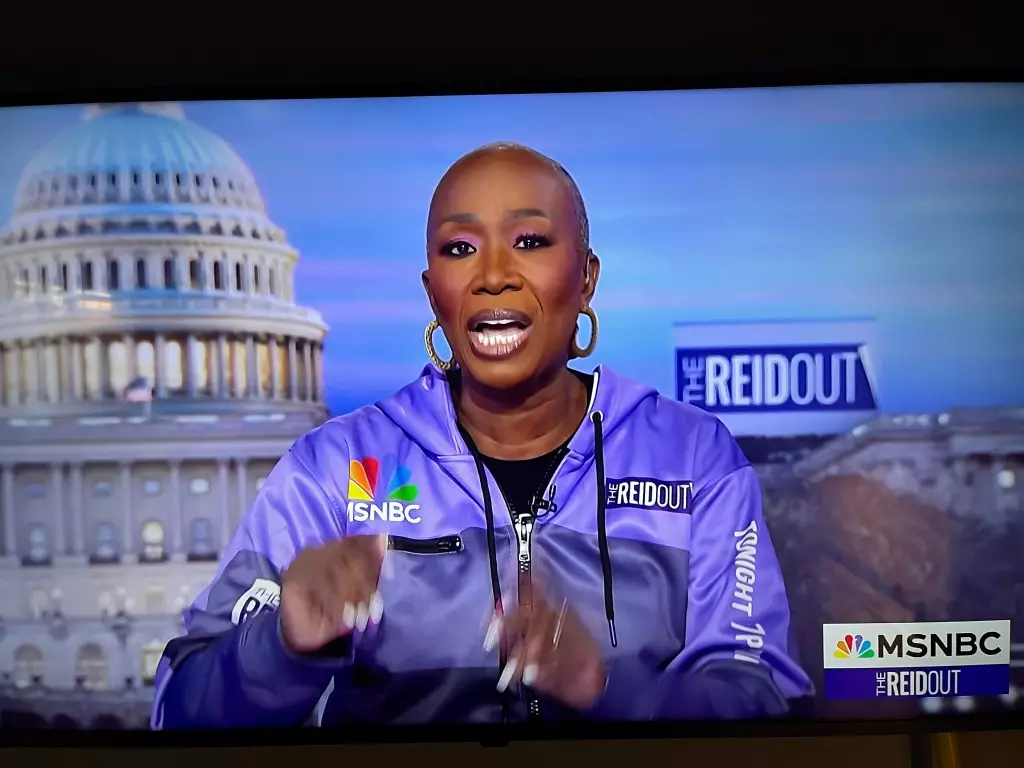The last episode of Joy Reid’s show, “The ReidOut,” on MSNBC marked not just the end of a program, but also initiated a critical dialogue on the state of democracy in America. With mounting tensions related to the possibility of Donald Trump returning to the presidential seat, Reid sought to address a vital question: how does one effectively resist in the face of acute democratic crises? With the ominous reality of fascism no longer a hypothetical concern but rather a present-day challenge, her reflective commentary resonated deeply.
This moment served as a poignant reminder for viewers and the general public alike, pushing them to understand the strategies and methodologies that ensure democratic endurance. Reid’s thought-provoking questions acknowledge a shared struggle in contemporary society; as many Americans grapple with the unsettling repercussions of political division, it becomes all the more crucial to unite in resistance.
Reid’s final show was not merely a goodbye, but a rallying cry for solidarity and mutual support among individuals who cherish the principles of democracy. Fellow MSNBC personalities, including Rachel Maddow and Nicolle Wallace, joined the platform to express both their admiration for Reid and the importance of collective action in uncertain times. Maddow’s heartfelt words, urging the audience to form meaningful alliances, epitomized the core message of resilience through connection. In an era where social and political landscapes can feel isolating, finding allies who resonate with shared values becomes paramount.
The sense of solidarity conveyed throughout the program serves as a template for resisting malign influences on democracy. By encouraging communities to forge bonds with those they respect, trust, and love, Reid lent her audience a sense of agency. In times of turmoil, the call for unity serves not just as a comfort, but a means of empowerment in one’s resistance against authoritarian tendencies.
Despite her impending departure, Reid focused on the intrinsic value of her work. Championing bold discourse on contentious issues, she expressed her lack of remorse for addressing topics that many shy away from—such as Trump’s actions perceived as threats to the Constitution and humanitarian abuses in regions like Gaza. Her unwavering commitment to difficult discussions underscores the role of journalism as a tool for social justice and accountability.
Reid’s perspective also invites a broader conversation about the responsibilities of journalists in contemporary society. As the public increasingly questions media credibility amidst escalating polarization, journalists like Reid play a crucial role in fostering informed discourse. Her insistence on tackling uncomfortable truths embodies a commitment to offering a platform for marginalized voices, prompting others to reflect on their roles as advocates in their own communities.
The cancellation of “The ReidOut” coincides with ongoing shifts within the cable news landscape. Though Reid’s ratings demonstrated a competitive stance against some shows, the decision to cancel her program follows a broader network restructuring, ultimately replacing it with new voices such as Alicia Menendez and Michael Steele. While changes in programming often lead to speculation and critique, it also highlights the evolving nature of media consumption and the strategic pivots networks undertake to maintain relevance.
Despite these changes, it is essential to recognize that Reid leaves behind a legacy of insightful dialogue and activism. The pushback from progressives regarding her show’s cancellation signals a hunger for representation and the need for ardent discourse on crucial socio-political issues. As networks realign, the pressing challenge remains: how to continue fostering authentic conversations about democracy and justice, which Reid so passionately championed.
In closing, Joy Reid’s final episode serves as both a farewell and a beacon for the future. As she urges her viewers to commit to resilience and resistance, her enduring influence as a journalist should not be overlooked. The conversation about democracy, social values, and the necessity of standing firm against authoritarianism will persist beyond the airwaves of “The ReidOut.” Embracing this legacy, individuals must continue to advocate for justice, forge connections, and resist complacency in the face of ever-evolving challenges, ensuring that the fight for democracy remains a collective effort rooted in compassion and commitment.
